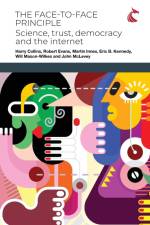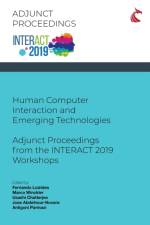av Harry Collins
271
The internet is changing the way knowledge is made and understood. It is a change from making knowledge via face-to-face interaction to making knowledge via remote interaction. The authors of this book believe that this change, if left unchecked, could be disastrous for the long-term future of pluralist democracy and the very idea of truth itself. The book explains what the change is, why it is so dangerous, and what needs to be done to stop it.That such dangers are real is made clear by recent events, which include the storming of the US Capitol in January 2020 by rioters unwilling to believe the election result, and the many similar 'controversies' around the Covid-19 pandemic.The argument is built in three stages, starting with the fundamental role of face-to-face interaction. The key element of this first section is a classification of the different features of face-to-face interaction. This combines extensive research in the sociology of science with insights from other fields, to identify the ways in which face-to-face interactions enable the formation of societies. That starts with primary socialisation, through which we learn the objects that make up our reality, and extends into secondary socialisation and other forms of learning. In all cases, trust in others, grounded in face-to-face interaction, is crucial, with science providing both the exemplary institution of knowledge production and the hard case upon which the irreducible need for face-to-face interaction is established.The authors then examine the development of remote communication and provide a systematic analysis of its strengths and weaknesses. This comparative element is important: face-to-face communication is not always good and remote communication is not always bad. Indeed, much of modern society would be impossible without remote communication. There is, however, a limit to how far face-to-face interaction can be replaced. This is illustrated with case studies, drawing on the wide experience of the authors, that examine what happens in settings where remote communication might seem to be preferable, and showing that, despite its apparent advantages, it cannot reproduce all the functions of face-to-face interaction.The third and final stage of the argument applies this analysis to the problems facing democratic societies. The authors show that social media enables users to create an 'illusion of intimacy' and to deploy remote communication to promote misinformation and distrust on an industrial scale. These developments are linked to the rise of populism, and the risk it poses to more pluralist forms of democracy characterised by institutional checks and balances. Drawing on the virtues of face-to-face communication, the authors argue that the 'conservation of democracy' depends on citizens understanding the long-term consequences of an over-reliance on remote communication. They conclude, therefore, by returning to the themes set out at the start of the book, namely the crucial role played by trust in modern societies and the importance of face-to-face interactions in reproducing that trust, and the democratic institutions in which it should be invested. All this should be part of the civic education of the future and is of immediate importance to politicians and social and political scientists among others.





